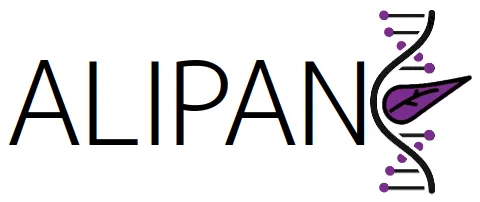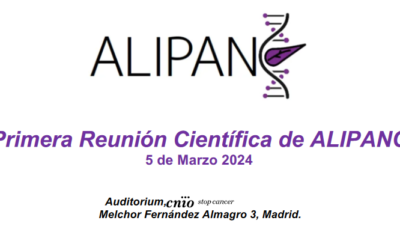ALIPANC
Pancreatic Cancer Research Alliance
We are a platform of researchers who combine efforts and resources to carry out high quality multicenter and multidisciplinary studies on this cancer with the ultimate goal of reducing its incidence and mortality and improving the survival of patients suffering from it.
Pancreatic cancer
Pancreatic cancer is one of the most aggressive tumors and, despite its relatively low incidence, it ranks very high in terms of mortality. In Spain, 8,211 pancreatic cancer patients were diagnosed in 2020 and 7,568 died in the same year. When a patient is diagnosed with pancreatic cancer, he loses 98% of his life expectancy because the average survival is still about 7 months, with only 7% of patients surviving 5 years after diagnosis. Although increasingly effective treatments exist, very few patients are able to benefit from them since the majority (80%) of patients are diagnosed when the tumor is already in advanced stages. Moreover, the fact that its frequency is increasing significantly in our environment is going to make this tumor a relevant public health problem if measures are not taken quickly.
Pancreatic cancer out of control
The little interest it has generated so far in society due to its lack of knowledge, in medical and research circles due to the limited availability of options for the management of these patients and the difficulties in researching this cancer, and in funding agencies due to its low incidence and prevalence, has meant that there have been no significant advances in controlling this disease compared to other cancers that are currently preventable and curable, such as breast cancer. All this explains why pancreatic cancer is out of control.
Science is the great hope against cancer.
Thanks to research, 60% of cancers that were fatal 30 years ago are now cured (Ministry of Science and Innovation). In order to control pancreatic cancer, it is therefore crucial to conduct research to understand its causes and pathophysiological and molecular mechanisms, how it can be diagnosed in early stages when it is still treatable, and how to improve its treatment and the management of patients at different stages of the disease.

The Alliance for Research on Pancreatic Cancer in Spain (ALIPANC) is a platform of researchers who join forces and resources to carry out high quality multicenter and multidisciplinary studies on this cancer with the ultimate goal of reducing its incidence and mortality and improving the survival of patients suffering from it.
ALIPANC was managed and born during the pandemic and has been growing over the last months with 58 groups and 139 members from 29 hospitals and 25 research centers in Spain.
Alipanc’s latest news
Explore the latest news and developments from ALIPANC
Our strong commitment is manifested in the creation of collaborative resources, such as databases and biobanks, as well as the training of promising young researchers. Stay tuned for our updates and progress that is making a significant mark in pancreatic cancer research.
The 56th edition of the European Pancreatic Club Congress is being held in Santiago de Compostela. ALIPANC members will attend to share their advances
The Galician city is preparing to host the 56th Congress of the European Pancreatic Club (EPC), which will take place...
The First Scientific Meeting of ALIPANC will be held in Madrid on March 5, 2024.
Researchers and experts in oncology from all over Spain will gather in Madrid next Tuesday, March 5, for a congress...
Christmas 2023-24
Dear ALIPANC community, From the Management Committee we do not want to end the year without thanking you very much...




